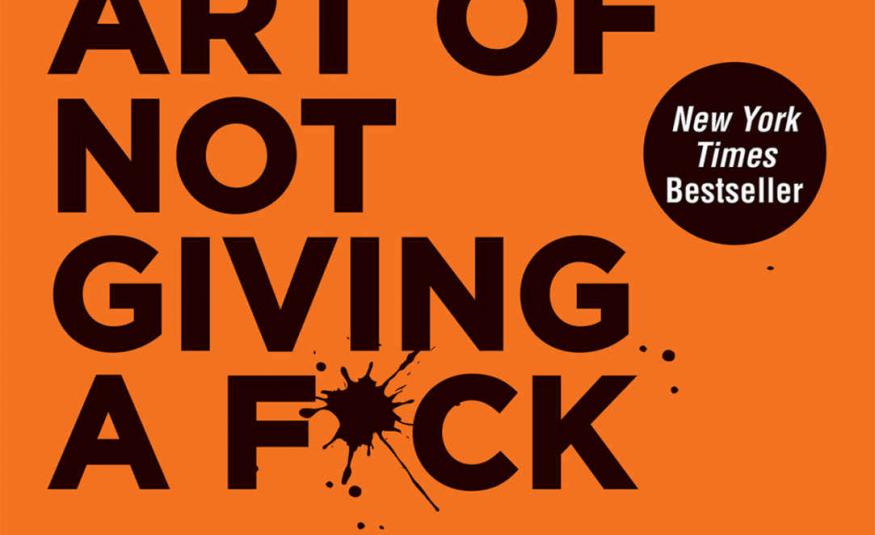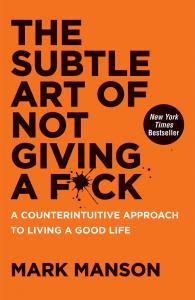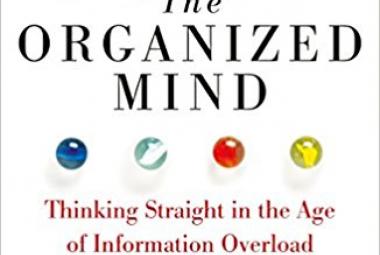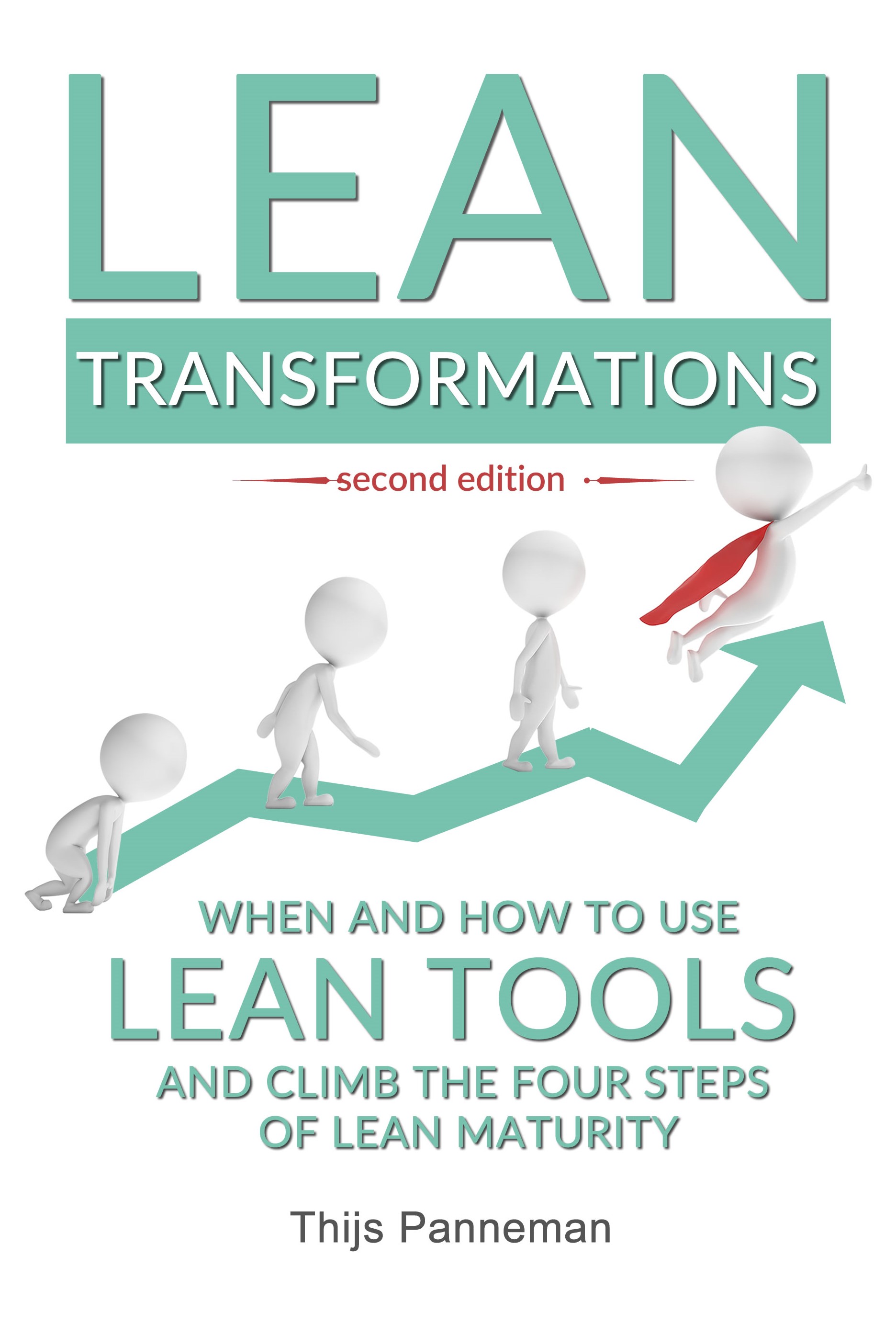In The Subtle Art Of Not Giving A F*ck, Mark Manson describes how to let go of everything that you do not need to give a f*ck about is the best way to a happy life. In his own words, his book is so ground breaking, that it is the self-help book for self-book haters.
The most important message is that you can choose what you really care about and where you want to put your energy. You can ignore all other things.
At the base of Manson his theory lies THE LAW OF THE INVERTER, from Alan Watts. This law describes that the more you do your best to feel better and better, the less satisfied you become, because chasing after only emphasizes the fact that you do not have that yet. In Manson his words: "The desire for more positive experiences is essentially a negative experience. On the other hand, the acceptance of a negative experience is actually a positive experience. "So: stop chasing after what the world thinks you should achieve, have or do, and accept your own situation.
This theory translates further into what Manson describes as DEFINITION OF HAPPINESS: solving your own problems. The way to happiness is choosing the pain you are willing to accept and then making improvements, through action.
However, the problems never completely disappear, they are only replaced by new problems that have to be resolved. Real success and satisfaction is therefore only found when you only give a f *ck for something you are willing to walk the road that leads to it, and to solve the problems you come across along the way. All things for which you are not willing to take action, you should not waste your f*cks.
The following example makes a clear difference between choosing for a road yourself and following a road because another forces you to: to run a marathon. When you have to run the marathon because someone is threatening you with a gun, you have a very different feeling about the problem as when you choose to run the marathon and your family and friends are waiting for you at the finish line. If something is forced upon you, the road will probably become a painful experience, while when you choose something yourself, the road can become an important milestone in your life.
Choosing and solving the behaviour of your own problems also translates to LOVE RELATIONSHIPS. The easy way, which many people sadly choose who are stuck in a victim role, is not to choose yourself to solve your problem, but to find a partner who does it for you. And vice versa, there are saviours who would like to solve problems for their partner instead of working on their own problems. In the end, these are non-functional relationships, where the two partners fool each other, as it were. They hope to make each other happy by influencing each other's feelings.
A relationship in which both partners support each other to solve their own problems (at their own choice) is much better. They both become happy by solving their own problems and love each other because they both appreciate that the other person tackles his or her problems independently.
To become happy and choosing the pain you want to accept and work on, it is important to work on your self-awareness. SELF-CONSCIOUSNESS IS LIKE AN ONION WITH THREE LAYERS: the more layers you take off, the more likely you are to cry.
The first layer is about the understanding of why you feel the way you feel. What makes you happy? What makes you unhappy? According to the author, by asking this question alone you are a lot further in steering your own happiness than most people.
The second layer of the onion describes the root cause of the emotion. Why do I feel so bad about myself? What is the basis of my feelings? Only if you understand where the feeling comes from you can take action.
The third layer describes the value that leads you to experience success or failure. Disturbed values that cause people to be unhappy have to do with pursuing pleasure, material success or always wanting to be right. These are the simplest examples of values that can make you unhappy. If you sincerely believe that success is determined by the amount of money you earn, you can feel bad about yourself if you are not willing to work hard for your career.
Fortunately, Manson also describes a few GOOD VALUES, values to which you should give an f*ck: honesty, vulnerability, humility, curiosity, standing up for others, standing up for yourself, creativity and self-respect. Actually, these are all values that are socially constructive, realistic, and manageable.
Manson also embraces the following five surprising values:
Uncertainty and failure both have to do with experimenting in an area that you do not yet know. Only by stepping outside of your comfort zone and acknowledging that you do not know everything can you grow, and only by failing can you make this cultivated area your own. In the words of Manson: "Life is all about knowing things, and then doing it anyway".
Taking responsibility for your situation is also an important value in moving forward. Responsibility is not the same as being guilty. It is not about who has made sure that you ended up in this situation, but you are responsible for how you deal with this situation (and not your partner).
Commitment and the corresponding rejection of everything else describes that if you really want to appreciate something you have to limit yourself. This means saying no to other things, occupations and relationships. Commitment means deepening, and deepening is always the best approach.
Finally, mortality. Embrace your mortality and embrace your life with more gratitude! Thinking about death and accepting the possibility that it can just be all over, also helps you to set the right priorities in the present.
The Simple Art of Not Giving a F*ck is a book for personal growth with a different approach than other books, but the conclusion is in line with all the other books I've read: stop living according to society's expectations, or pursuing exceptional results that the social media suggests that make you think are easy to achieve. Find out what makes you happy, choose the pain you are willing to suffer, and stop giving a f*ck about all the other things that do not contribute to that
Continue to:
Crucial Conversations - Patterson,K., et.al. (summary)
REFERENCE:
Manson, M., 2017, The Subtle Art of Not Giving A F*ck – The Counterintiutive Approach to Living a Good Life, New York: HarperCollins















